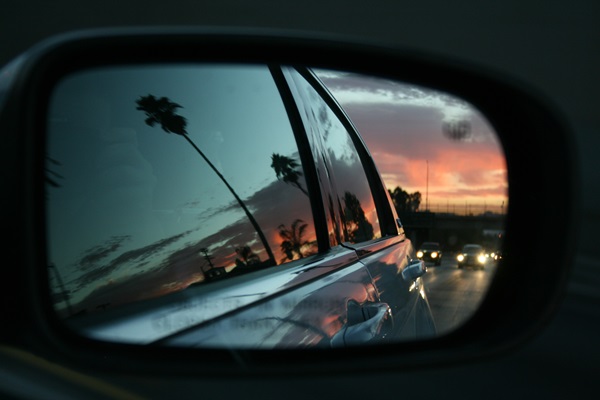When do you feel most spiritual? Is it something that others would not ever expect to call it as such?
It took some time for her to figure it out. But, my spouse knows what I mean when I say, “I need to go for a drive tonight.”
It means that something is not okay within me and that I need some time to myself to think things through... while I drive.
Yes, you read that right.
I mean, I am here in the Los Angeles area, after all. I get to journey through urban architecture, skyscrapers, ethnic enclaves, mountainous roads, and a coastal highway. It is a different route every time. By the time I get home, I arrive with a renewed sense of commitment to making my life count for something even greater than what I can presently understand.
Are you curious as to how this works, exactly?
What makes a moment "spiritual"?
Well, I have been thinking about it myself lately. It could be that a drive provides a moment of silence for me in this life that has become so hectic over time. It could be that it transports me out of my usual physical space, allowing me to think about things from a different angle. Or, it could, of course, be that cars are indeed magical, can talk to you through your watch, and can partner you up with David Hasselhoff to stand up for the underdog.
Maybe. After all, that particular car is just over the hill at Universal Studios.
Or, it could be that, when I see storefronts with signs in languages other than English, I feel a little more, “at home.”
And, when I see the urban lights, most prominently displayed by the well-filmed downtown skyline, I dream that, maybe one day, one of those skyscrapers might bear the name of my newly started ministry innovation consultancy: PASTORIA.
When driving on the coastal highway, the smell of the ocean and the sound of the waves take me back to when I was in college, driving that same route, only that time with a conviction about my life’s future that bravely superseded the confines of logic, reality, and my bank account.
These kinds of things happen to some people while they are hiking. For others, it happens while walking through a Japanese garden or hearing the sound of the stream that flows through it. Or, it happens when they light a candle and watch it burn in a dimly lit house of worship.
To me, it happens when I drive, here in Los Angeles, as though the freeways are one big labyrinth.
What is the goal, then? Is it to reach some point of clarity or peace whenever there is disruption inside?
No, the elimination of difficulty or discomfort is not the purpose of engaging in a spiritual practice. In fact, even a cursory glance at the Bible should lead someone to clearly see how God actually drives people out of their minds and towards activities that make little sense at the time.
Instead, what I think makes some activity an actual spiritual practice is that it provides a means by which to recognize, examine, and engage one’s sense of “wrongness.”
Why do I feel this way? If something does not feel right, does it mean that I know what “right” feels like, or does it mean that this “not right,” is easily recognizable on its own? Is there something that I want instead of this “not right?” If so, then why that?
All of these questions are not meant to lead me to concrete answers, per se. The point is that I gain a greater grasp of the sense of “wrongness” itself. This should lead to the paradigm that part of the human experience is the ability to integrate thoughts, feelings, bodily sensations, and everything else about existence into something that, literally, “makes sense.”
Some call this, “prayer.” In short, it is the act of acknowledging one’s state of existence with the expectation that doing so would actually help change it.
Seize your spiritual moments today
So, the next time you have a sense that something is right, how about giving driving a try?
It is not exactly the most environmentally friendly. Sorry. If you need to substitute driving with something else, please do. Whatever is the actual activity, if it can be like driving, it will ask your body to act by muscle memory, giving your soul the freedom to wander.
Do it with the belief that an answer to your questions is not what you need just yet; that, instead, what will help you is confidence and assurance of your own humanity. You will get yourself on the path that you want to be on. You just first need to believe that you can do that.
Maybe by the time you park your car, you will have taken a deep breath, accepted yourself for who you are, and committed to giving life another try.
James J. Kang is Head of Guidance and Co-Founder of PASTORIA, a ministry innovation consultancy, and an alum of Claremont School of Theology.





